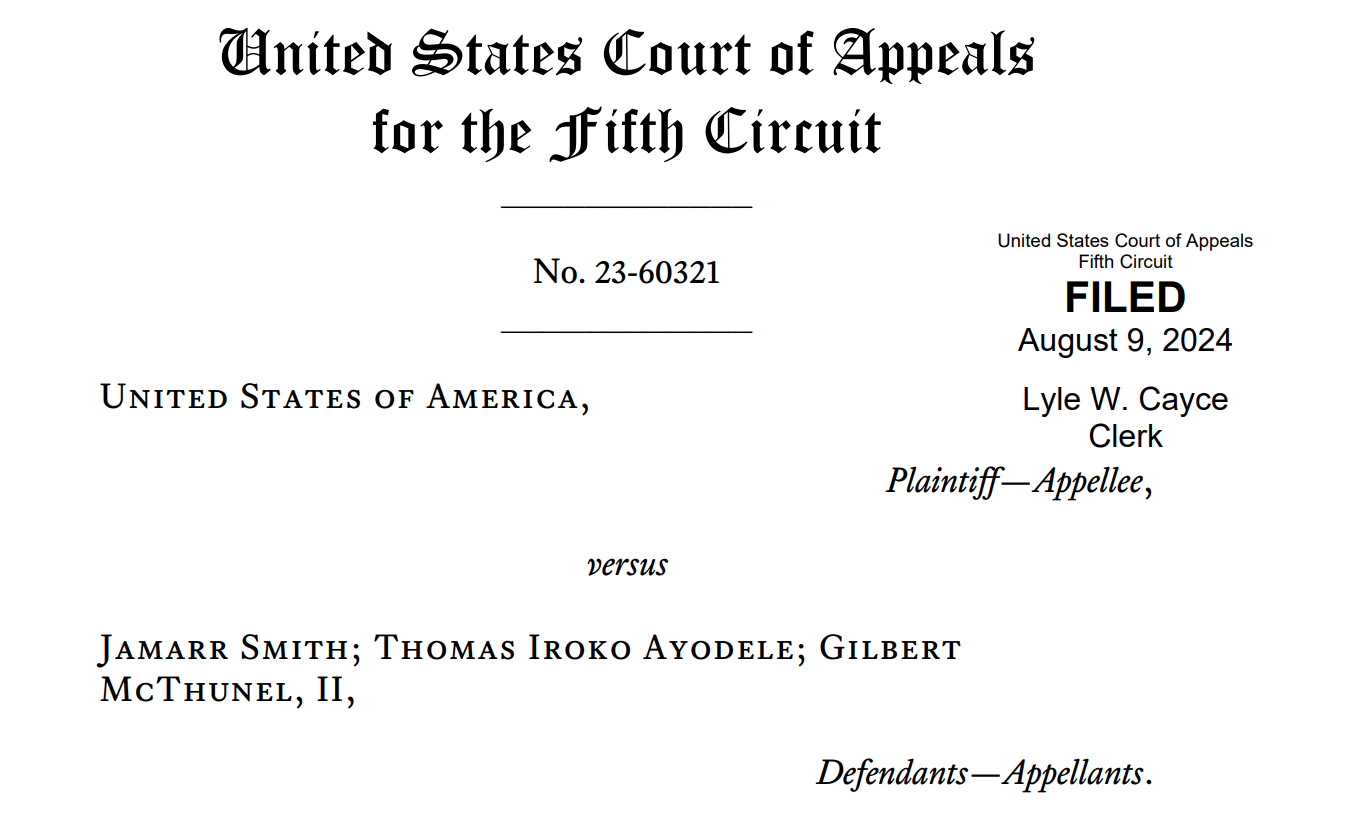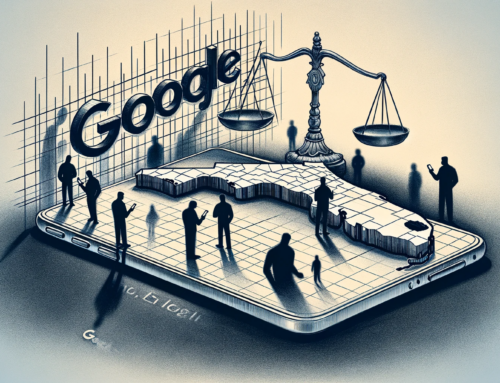Fifth Circuit Rules Geofence Warrants Unconstitutional in Landmark Decision
In a groundbreaking ruling, the U.S. Court of Appeals for the Fifth Circuit has declared geofence warrants unconstitutional, dealing a significant blow to a powerful but controversial law enforcement tool. The United States v. Smith decision marks the first time a federal appeals court has ruled on the constitutionality of geofence warrants, setting up a potential circuit split with the Fourth Circuit.
What are Geofence Warrants?
Geofence warrants allow law enforcement to obtain Google’s location data for all devices in a specific area during a particular time frame. This data comes from Google’s vast “Sensorvault” database, which contains location information from millions of users who have enabled Google’s Location History feature.
The Case at Hand
The case stems from a 2018 robbery of a U.S. Postal Service employee in Mississippi. Unable to identify suspects through traditional means, investigators obtained a geofence warrant for the area around the crime scene. This led to the identification and eventual conviction of three defendants: Jamarr Smith, Thomas Iroko Ayodele, and Gilbert McThunel II.
The Court’s Ruling
In a unanimous decision, the Fifth Circuit panel held that:
- Individuals have a reasonable expectation of privacy in their Google Location History data.
- Geofence warrants constitute a “search” under the Fourth Amendment.
- Geofence warrants are unconstitutional “general warrants” prohibited by the Fourth Amendment.
Despite this ruling, the court upheld the defendants’ convictions under the “good faith exception,” finding that law enforcement reasonably relied on the warrant given the novelty of the technology and lack of clear precedent at the time.
Key Points from the Opinion
The court’s opinion, authored by Judge King, made several important observations:
- Privacy Expectations: The court found that the precision and comprehensive nature of Google Location History data creates a reasonable expectation of privacy, even for short time periods.
- Third-Party Doctrine: The court rejected the application of the third-party doctrine, which typically holds that information voluntarily shared with third parties loses Fourth Amendment protection. The opinion noted that the “voluntary” nature of sharing location data with Google is questionable, given how the opt-in process works.
- General Warrants: The court likened geofence warrants to the “general warrants” that the Fourth Amendment was specifically designed to prohibit. These warrants allow law enforcement to search through massive amounts of data without identifying specific suspects or demonstrating probable cause for each individual whose data is searched.
- Contrast with Fourth Circuit: The Fifth Circuit’s ruling creates a split with the Fourth Circuit, which previously held in United States v. Chatrie that geofence warrants do not violate the Fourth Amendment.
Implications and Future Outlook
This ruling could have far-reaching implications for law enforcement and privacy rights:
- It may significantly curtail the use of geofence warrants in the Fifth Circuit’s jurisdiction (Texas, Louisiana, and Mississippi).
- The circuit split increases the likelihood that the Supreme Court will eventually take up the issue of geofence warrants.
- It may prompt Congress to consider legislation regulating geofence warrants and similar technologies.
- The decision could influence how other courts approach novel surveillance technologies and their Fourth Amendment implications.
While the good faith exception may limit the immediate impact on law enforcement, this ruling sets an important precedent for future cases involving geofence warrants and other emerging surveillance technologies. As Judge Ho noted in his concurrence, “Our decision today is not costless. But our rights are priceless.”
Google’s Recent Changes and the Ruling’s Significance
The Fifth Circuit’s ruling takes on added significance in light of Google’s recent announcement about changes to how it stores location data. In December 2023, Google revealed plans to update Maps to store users’ location history locally on their devices instead of in the cloud. This change, expected to roll out over the next year, will make it much more difficult for law enforcement to access this data through geofence warrants.
Key points of Google’s update include:
- Location history data will be stored on users’ devices, not in Google’s cloud.
- The auto-delete setting for location data will default to three months instead of 18 months.
- Users can still back up their location data to the cloud, but it will be encrypted.
These changes directly respond to privacy concerns and the controversial use of geofence warrants. By storing data locally, Google will no longer have immediate access to the aggregate location data that geofence warrants typically seek.
The timing of Google’s announcement, coming just months before the Fifth Circuit’s ruling, underscores the growing scrutiny of geofence warrants and location data privacy. It also raises questions about the future viability of geofence warrants as an investigative tool:
- Limited Data Availability: With location data stored locally, the data pool available through geofence warrants will likely shrink significantly, potentially rendering them less useful for law enforcement.
- Technological Workarounds: The ruling and Google’s changes may prompt law enforcement to seek alternative methods of obtaining location data, potentially leading to new privacy concerns.
- Legal Uncertainty: As technology companies change their data storage practices, courts may need to reassess how Fourth Amendment protections apply to locally stored data versus cloud-stored data.
- Legislative Action: The combination of court rulings like this one and changes in tech company practices may increase pressure on Congress to pass comprehensive legislation regulating the use of location data in criminal investigations.
While the Fifth Circuit’s ruling declares geofence warrants unconstitutional, Google’s changes may make the point moot in many cases by simply making the data inaccessible. This development highlights the complex interplay between technological advancements, corporate policies, and constitutional law in the digital age.
As we move forward, it will be crucial to monitor how other tech companies respond, how law enforcement adapts its investigative techniques, and how courts continue interpreting the Fourth Amendment in light of these rapid changes in technology and data storage practices.
As technology evolves, courts face more challenges in balancing public safety with constitutional protections. The Fifth Circuit’s decision in United States v. Smith may be remembered as a landmark ruling in this ongoing struggle.
CALL US NOW for a CONFIDENTIAL INITIAL CONSULTATION at (305) 538-4545, or take a moment to fill out our confidential and secure intake form.* The additional details you provide will greatly assist us in responding to your inquiry.
THERE ARE THOUSANDS OF LAW FIRMS AND ATTORNEYS IN SOUTH FLORIDA. ALWAYS INVESTIGATE A LAWYER’S QUALIFICATIONS AND EXPERIENCE BEFORE MAKING A DECISION ON HIRING A CRIMINAL DEFENSE ATTORNEY ATTORNEY FOR YOUR MIAMI-DADE COUNTY CASE









